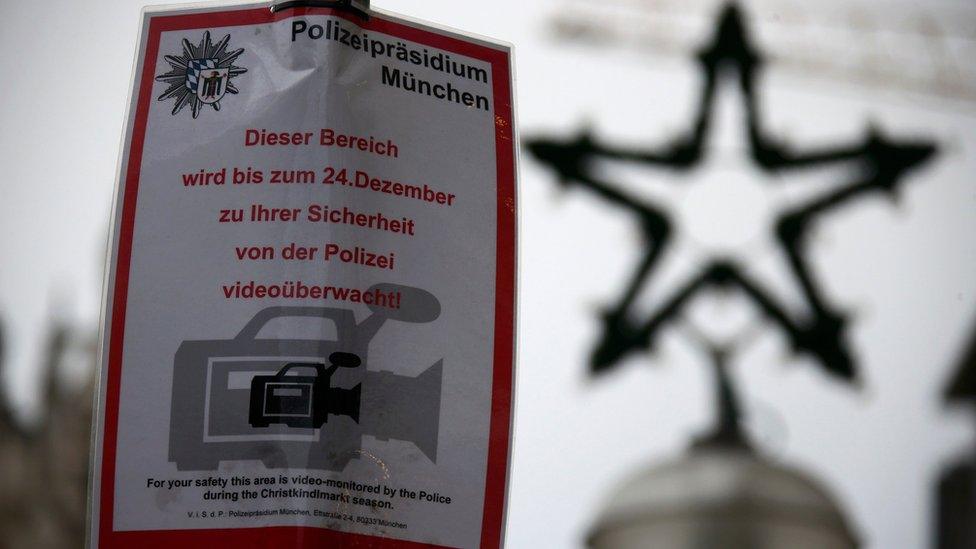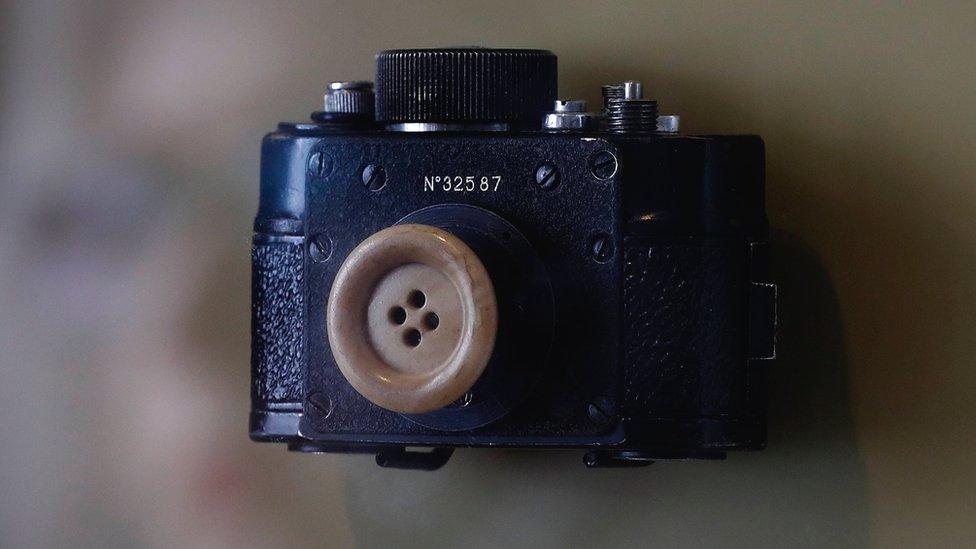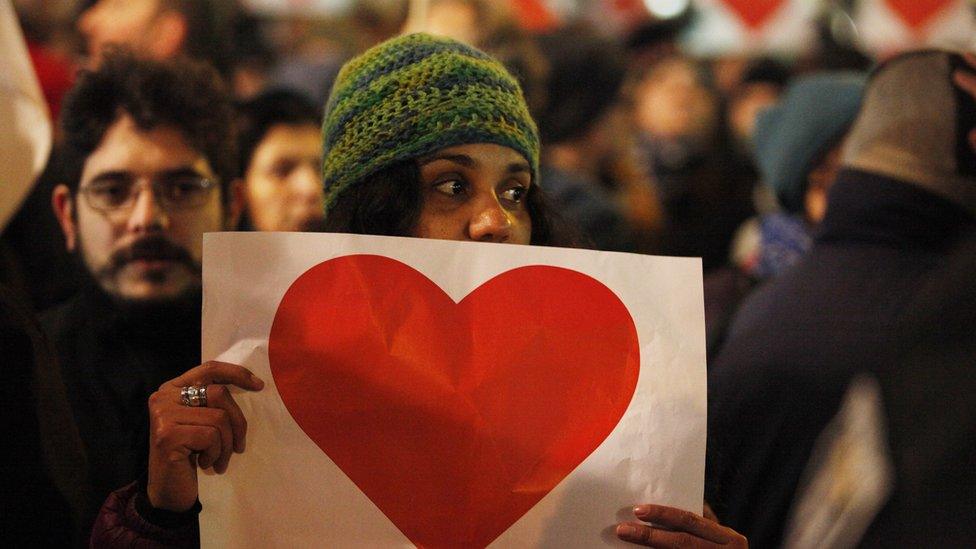Germany surveillance: Security trumps privacy as video bill passed
- Published

Videos are being increasingly deployed by the German state and private firms - but critics question their impact on crime rates
Public video surveillance appears set to become more commonplace in Germany after the lower house of parliament approved a package of new measures.
Security concerns will now be given greater weight against privacy when venues such as shopping centres apply for permission to install cameras.
Only now will federal police get systems to scan car license plates.
Bad memories of Communist-era state snooping have made Germans wary of extending surveillance powers.
But mass sexual assaults on women in Cologne on New Year's Eve in 2015, and a string of attacks on civilians in July, prompted Interior Minister Thomas de Maiziere to introduce the bill of measures in August.
Pressure for more effective security measures increased further after December's lorry attack on a Christmas market in Berlin.
The measures were approved by the Bundestag in a marathon session on Thursday which began at 09:00 (08:00 GMT) and concluded at 01:39 local time on Friday, German broadcaster Deutsche Welle reports.

The case for video surveillance - and an expert's view

Mass monitoring by the Communist-era Stasi intelligence agency and Gestapo secret police with devices such as hidden cameras mean many Germans today are defensive of their privacy
Bundestag statement, external: the case for the new surveillance
"The attack on the Christmas market at Breitscheidplatz in Berlin, as well as the attempted attack in Ansbach and the shooting spree in Munich in the summer, have shown quite clearly: terrorists and offenders choose frequently crowded public areas for attacks to inflict the greatest possible damage.
The Federal Government therefore wants to amend the regulation on video surveillance in the Federal Data Protection Act. The protection of life, health or freedom of people should be regarded as a 'particularly important interest' in video surveillance by private operators in publicly accessible areas. Data protection authorities are to take particular account of this statutory assessment when examining video surveillance."
An expert view: Tobias Matzner, Ethics of Intelligent Video Surveillance project leader, University of Tubingen
"I am not aware of any studies that prove the effectiveness of video surveillance as a deterrent. In some cases, criminal activity has decreased after the installation of video surveillance, but that has always been part of a bigger number of measures.
Regarding the threats to security by terrorism and other violent actors, a deterrent effect is rather unlikely. Terrorists will either take existing surveillance into account, or in the case of a suicide mission, most probably don't care.
So surveillance might deter some specific forms of criminal deeds (car theft is sometimes cited, but I wouldn't even take that as definitive) but the ones which have been foregrounded as a reason for the new legislation are most probably not among them."

Authorities will still get final approval when places such as shopping centres, sports venues and car parks want to fit cameras - but "protection of life, health or freedom" will now assume greater weight.
The bill also introduces small body cameras for police - a measure whose impact on crime some critics have questioned.
There has also been some criticism of the wider measures - with some making the point that cameras are already widespread around Cologne railway station, where the New Year's Eve assaults took place, and that what was needed was more efficient monitoring of the cameras.
- Published17 February 2017

- Published21 December 2016
